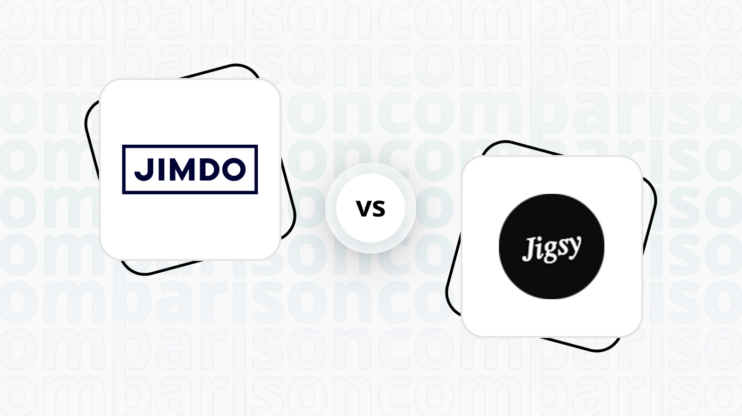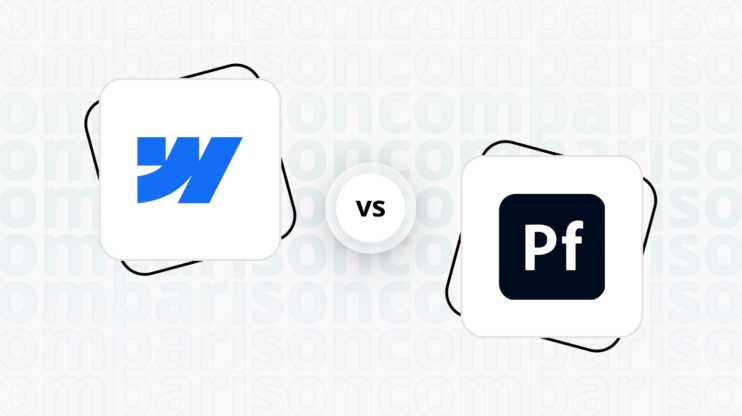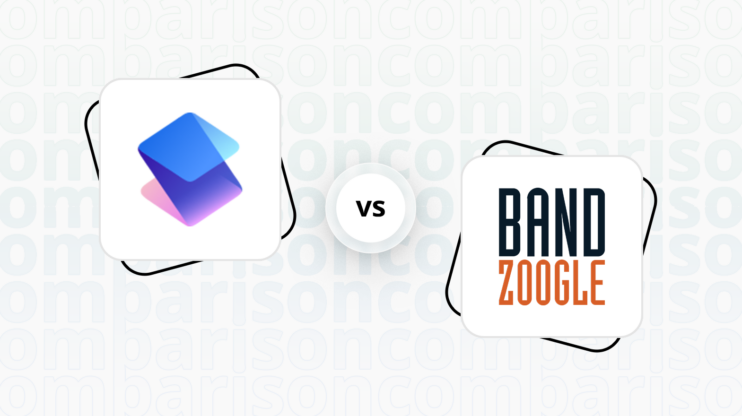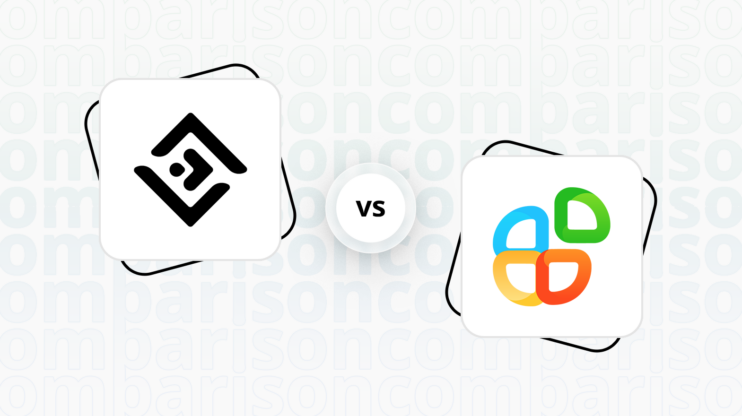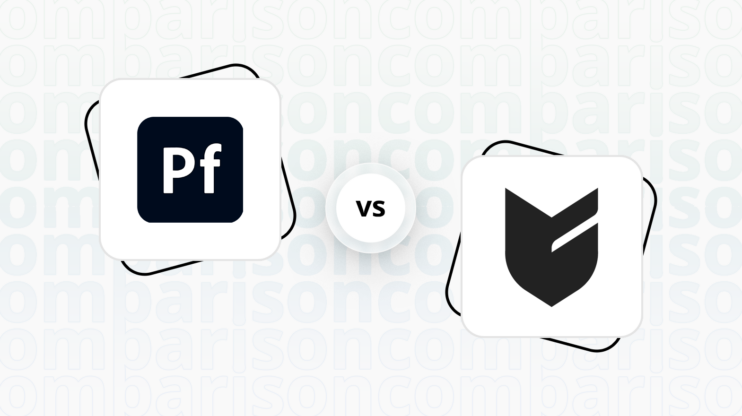GoDaddy vs Framer: Final verdict
GoDaddy and Framer both offer unique strengths, catering to different user needs and preferences.
-
GoDaddy (Overall Grade: 7.5/10)
is a comprehensive platform ideal for users seeking an all-in-one solution for website creation and management. It excels in ease of use, ecommerce capabilities, and customer support, making it a great choice for beginners and small businesses. With a wide range of hosting services, robust marketing tools, and a user-friendly interface, GoDaddy is well-suited for those looking for a reliable and affordable website builder. -
Framer (Overall Grade: 7.1/10)
stands out for its advanced design functionalities and AI capabilities, making it perfect for designers and developers who need extensive customization and high-fidelity prototyping. While it has a steeper learning curve and lacks native ecommerce features, Framer’s intuitive interface, real-time collaboration, and comprehensive component library make it an excellent choice for creative professionals and teams focused on design and user experience.

|

|
|
|---|---|---|
|
Design functionalities & templates |
8.0 |
8.5 |
|
Ease of use |
8.2 |
7.1 |
|
Ecommerce |
7.2 |
5.9 |
|
Website Editors |
6.7 |
7.6 |
|
Product testing options |
8.1 |
6.2 |
|
Price |
7.9 |
7.7 |
|
Hosting quality |
7.8 |
7.1 |
|
Website speed optimization |
7.6 |
7.4 |
|
Plugins and integrations |
7.3 |
7.6 |
|
Marketing features |
7.3 |
7.2 |
|
Customer support |
8.5 |
5.6 |
|
Security |
6.8 |
8.2 |
|
AI capabilities |
7.5 |
7.6 |
|
User Management |
7.3 |
7.4 |
Which one is the best for ecommerce: GoDaddy or Framer?
 7.2
7.2
 5.9
5.9
Verdict
: GoDaddy is more suitable for comprehensive ecommerce needs, while Framer excels in design but lacks native ecommerce functionalities.
-
GoDaddy
: Known for its integrated ecommerce solutions, GoDaddy provides a range of tools for payment processing, shipping, and product management. It is ideal for users looking for an all-in-one platform to manage their online store. However, when comparing GoDaddy vs Framer, GoDaddy might require some coding knowledge for advanced customization. -
Framer
: While Framer offers excellent design capabilities and customization options, it lacks native ecommerce features and relies on third-party integrations like Ecwid for ecommerce functionalities. This makes it less suitable for users who need a robust ecommerce platform but great for those who prioritize design flexibility.
Which one is the best for informational and business websites?
 7.9
7.9
 7.5
7.5
Verdict
: GoDaddy and Framer both offer robust solutions for informational and business websites, but they cater to different user needs. GoDaddy is ideal for beginners and those seeking an all-in-one solution, while Framer is better suited for users who prioritize design flexibility and advanced features.
-
GoDaddy
: GoDaddy scores 7.9 for informational and business websites. It is a comprehensive platform offering a range of services, including domain registration, web hosting, and a user-friendly website builder. GoDaddy provides an extensive collection of over 1500 templates catering to various industries, making it a versatile choice for users seeking visually appealing designs. Its ease of use, scoring 8.2, makes it popular among beginners. However, its design functionalities are more basic compared to Framer, and it may have some limitations in terms of advanced features and third-party integrations. -
Framer
: Framer scores 7.5 for informational and business websites. It blends AI-driven design with an intuitive user interface, offering extensive customization through a comprehensive component library. Framer stands out for its robust design and prototyping features, including responsive design capabilities and real-time collaboration. While it may present a learning curve for beginners, its advanced features make it an ideal choice for designers and developers. Framer’s security measures are more comprehensive, and it offers a variety of plugins catering to different needs. However, it lacks native e-commerce features and may not be as user-friendly as GoDaddy for complete beginners.
GoDaddy vs Framer: Detailed comparison
Design functionalities & templates
Design FunctionalitiesRepresents how well each platform allows for creative design and customization of websites.Score Components:
- Template Variety (30%): Range and quality of design templates.
- Customization (30%): Flexibility and options for design alterations.
- User Interface (20%): Ease and intuitiveness of the design process.
- Responsiveness (10%): Adaptability to different devices and screen sizes.
- Innovation (10%): Unique design features and tools.
 8.0
8.0
 8.5
8.5
🏆
Winner: Framer.
If you’re looking for a platform that offers more creative control and a wide array of design features, Framer is the preferred choice.
GoDaddy provides an extensive collection of over 1500 website templates catering to diverse industries and design preferences. These templates cover business, ecommerce, creative, personal, and non-profit sectors, offering various styles such as modern, classic, bold, minimalist, and content-focused. With customization options, mobile responsiveness, and a combination of free and premium templates, GoDaddy aims to meet the needs of users seeking versatile and visually appealing website designs.
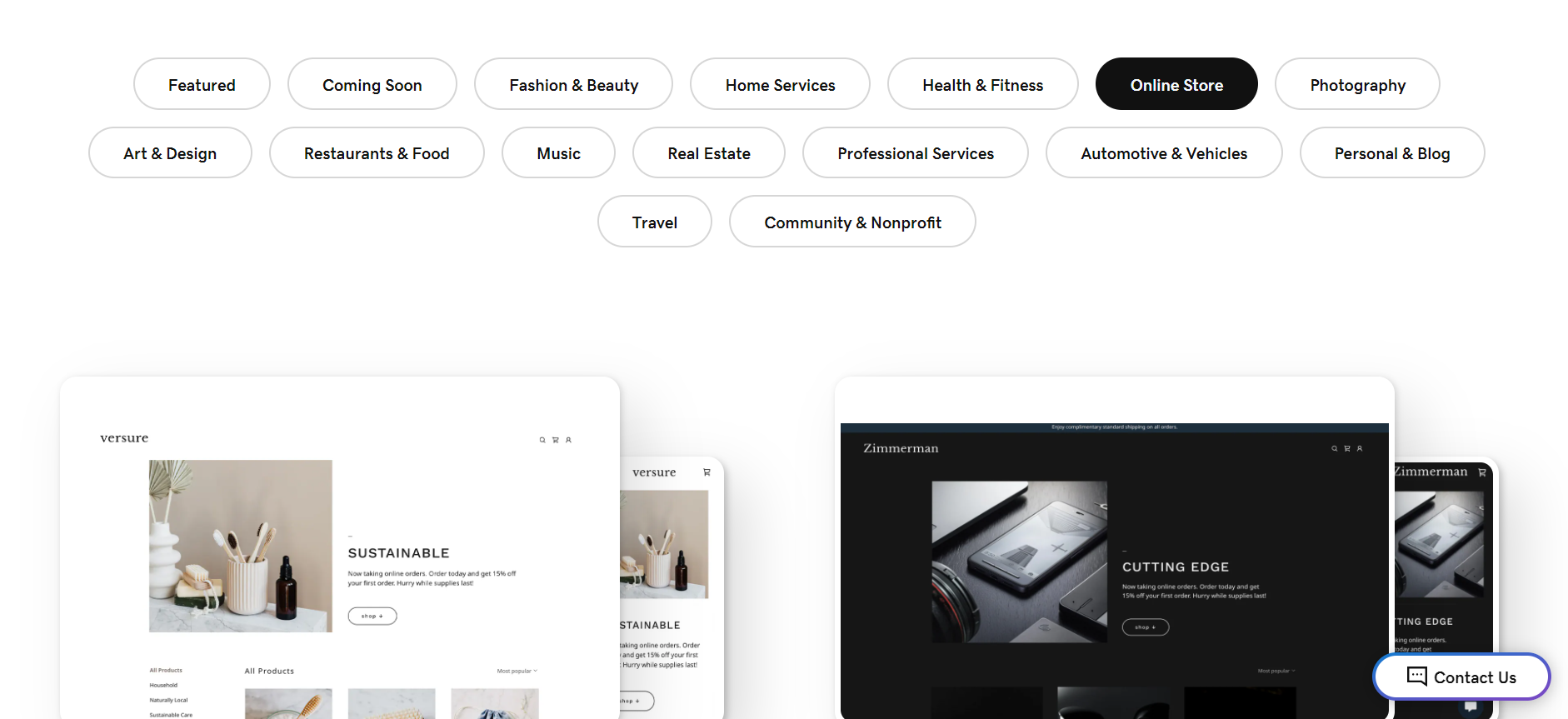

Compared to GoDaddy, Framer offers a diverse array of over 1,000 customizable website templates and designs, catering to various industries and project requirements. It stands out for its robust design and prototyping features, including responsive design capabilities, real-time collaboration, and extensive import options from other design tools. The platform facilitates a collaborative design process through features like multiplayer functionalities and real components for interactive design, making it an ideal choice for designers, developers, and teams.
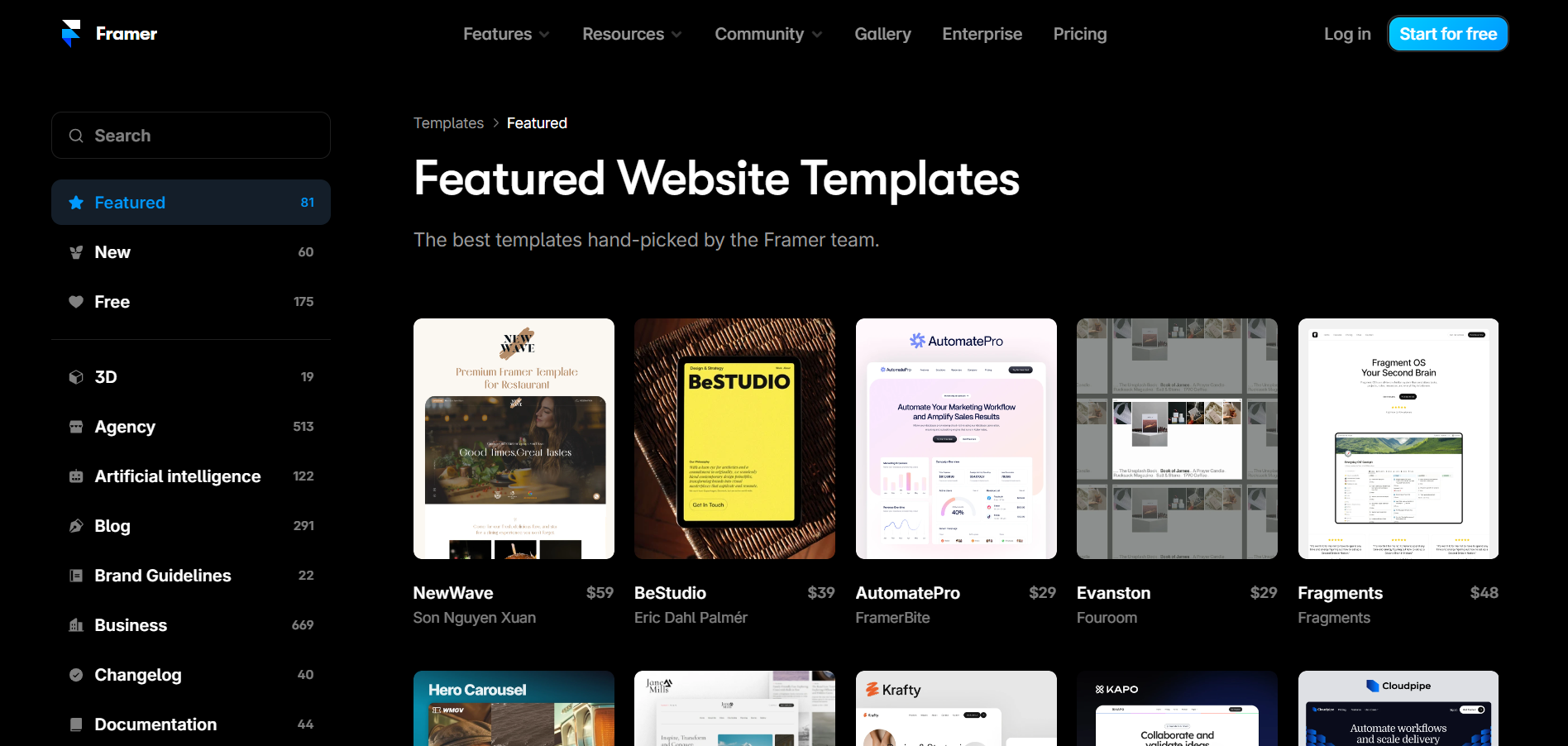
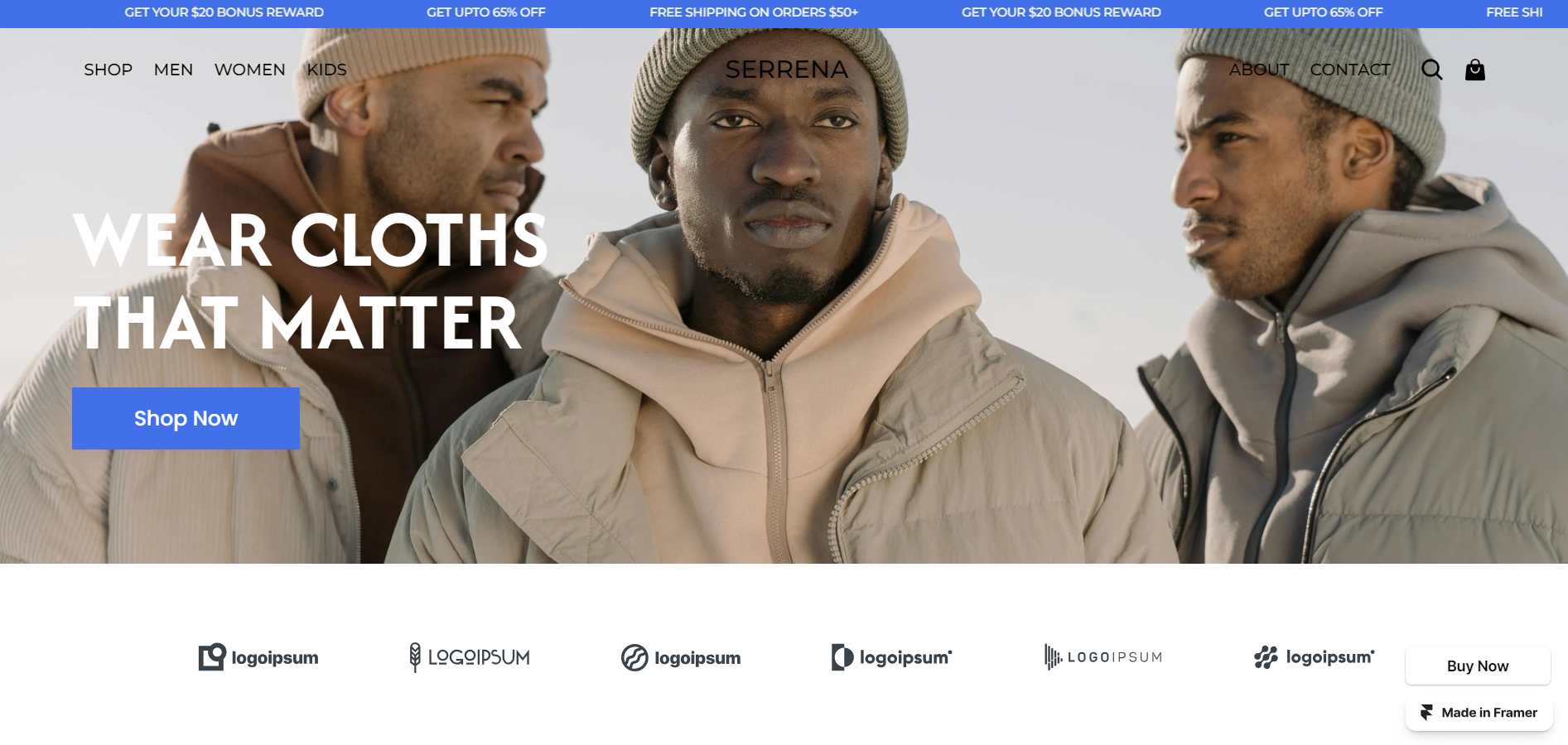
Get a head start on website creation with AI
Create a custom website tailored to your business needs 10X faster with 10Web AI Website Builder!
Ease of use
Ease of useReflects the platform’s overall user-friendliness.Score
Components:
- Learning curve (40%): Quickness and ease of getting started.
- Interface design (30%): Simplicity and intuitiveness of layout.
- User guidance (20%): Quality of tutorials and support.
- Flexibility (10%): Adaptability to various user skills.
 8.2
8.2
 7.1
7.1
🏆 Winner: GoDaddy
. Scoring 8.2, GoDaddy’s user-friendly platform is popular among beginners due to its easy-to-use features and services. Framer, with a score of 7.1, offers an intuitive interface but may present a learning curve for complete beginners due to its advanced features. If ease of use is a priority, GoDaddy is the clear winner in this category.
Learning Resources
🏆 Winner: Framer
. Both platforms offer solid learning resources, but Framer goes a step further with its detailed courses and lessons on Framer Academy, making it easier for users to learn and adapt.
For ecommerce
EcommerceMeasures the platform’s effectiveness in supporting online business activities.Score Components:
- Ecommerce themes and templates (20%): Variety and design of templates.
- Product management (25%): Ease of managing and organizing products.
- Payment options (25%): Variety and convenience of payment methods.
- Ecommerce features (20%): Features for managing an ecommerce store.
- Integration (10%): Compatibility with external e-commerce tools and services.
 7.2
7.2
 5.9
5.9
GoDaddy and Framer offer different experiences when it comes to ecommerce. GoDaddy provides a more comprehensive ecommerce solution with integrated payment processing, flexible shipping options, and comprehensive tools for product and order management. Framer, on the other hand, does not offer native ecommerce features and relies on Ecwid’s free shopping cart extension for ecommerce functionalities.

|

|
|
|---|---|---|
|
Ecommerce themes and templates |
6.5 |
7.0 |
|
Product page customization |
6.0 |
5.5 |
|
Payment processing and commissions |
7.5 |
6.5 |
|
POS capabilities |
6.0 |
3.0 |
|
Payment gateways |
7.0 |
6.0 |
|
Product numbers |
7.0 |
6.0 |
|
Additional ecommerce features |
6.5 |
5.5 |
GoDaddy ecommerce features:
- Payment processing
- Shipping options
- SEO tools
- Email marketing features
- Social media integrations
- Detailed reports
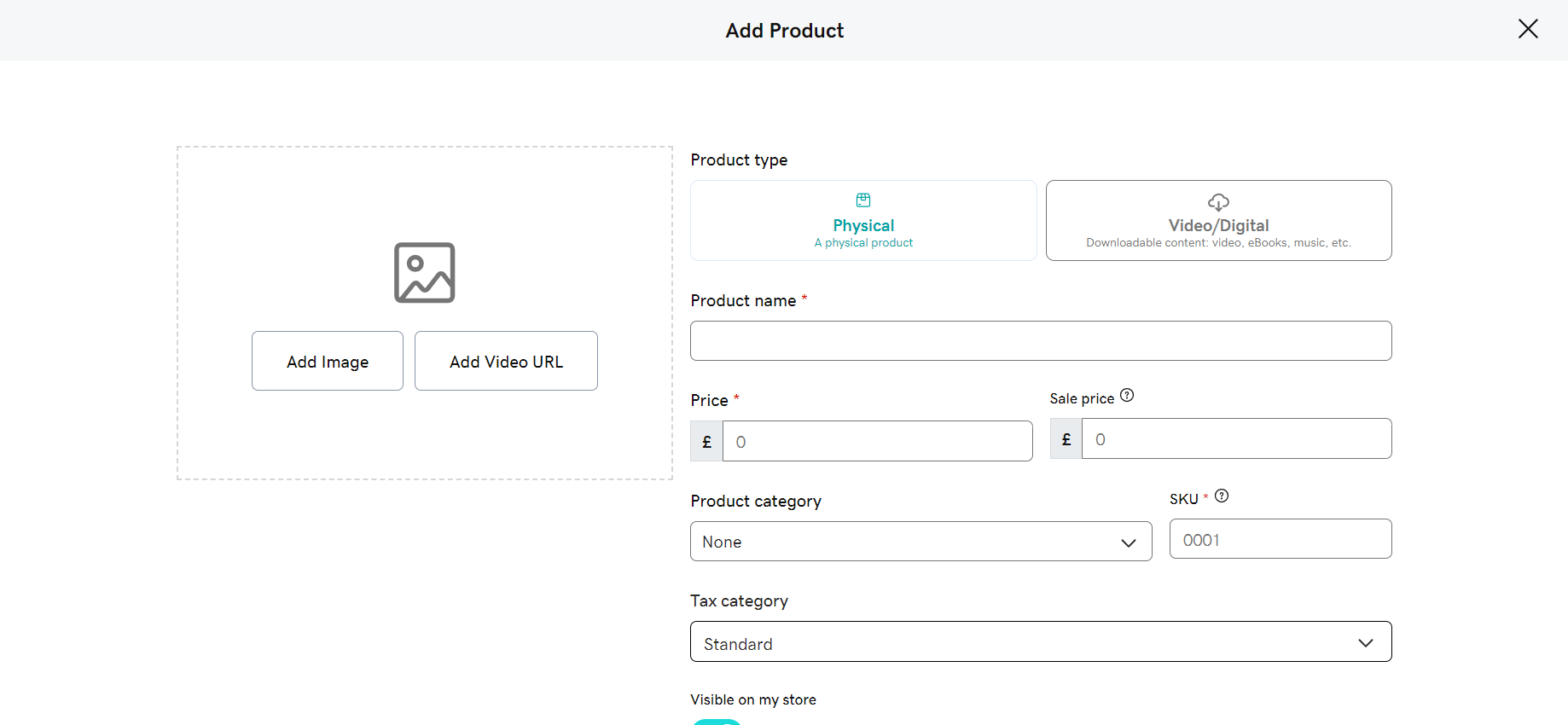
Framer ecommerce features:
- Ecwid integration
Ecommerce themes & templates
GoDaddy offers around 70-80 ecommerce themes that cover diverse industries and styles. These themes are generally mobile-friendly with basic customization options. However, extensive design changes might require coding knowledge. Framer offers 97 website templates specifically designed for ecommerce. These templates are highly customizable, allowing for easy adjustments to colors, fonts, layouts, and integration with essential ecommerce tools.
Product page customization
GoDaddy’s ecommerce platform offers users basic customization options like editing content, adding images, and adjusting layouts. For advanced customization, coding knowledge is required. Framer, however, primarily focuses on expanding design possibilities for ecommerce but lacks inherent ecommerce functionalities and instead heavily depends on integrating with platforms such as Shopify and Ecwid.
Payment processing
When it comes to payment processing, GoDaddy Payments provides a versatile solution for online, in-person, and phone payments with a tiered pricing structure. Framer supports Stripe for payment processing, enabling a wide range of payment options including one-time payments, subscriptions, and more, without requiring coding. However, Framer’s focus is on online transactions and ecommerce integrations, and there’s no explicit mention of native POS functionality.
Website Editors
Website EditorsEvaluates the platforms’ website building and editing capabilities.Score Components:
- Customization tools (40%): Range and power of editing features.
- Editor usability (30%): User experience within the editor.
- Design flexibility (20%): Freedom in layout and design changes.
- Update and maintenance ease (10%): Simplicity of updating and maintaining the site.
 6.7
6.7
 7.6
7.6
🏆
Winner: Framer
. Framer, with a score of 7.6, is designed for high-fidelity prototyping and complex animations, catering to both designers and developers. It offers a robust set of tools for creating interactive and responsive designs, including a wide array of pre-built components, real-time collaboration features, and the ability to integrate with other design tools and workflows. Users can leverage Framer’s editor to craft detailed animations, fine-tune interactions, and test their designs across various screen sizes and devices. Additionally, its code export feature allows for seamless transition from design to development, making it a versatile choice for teams aiming to create polished, user-centric websites.
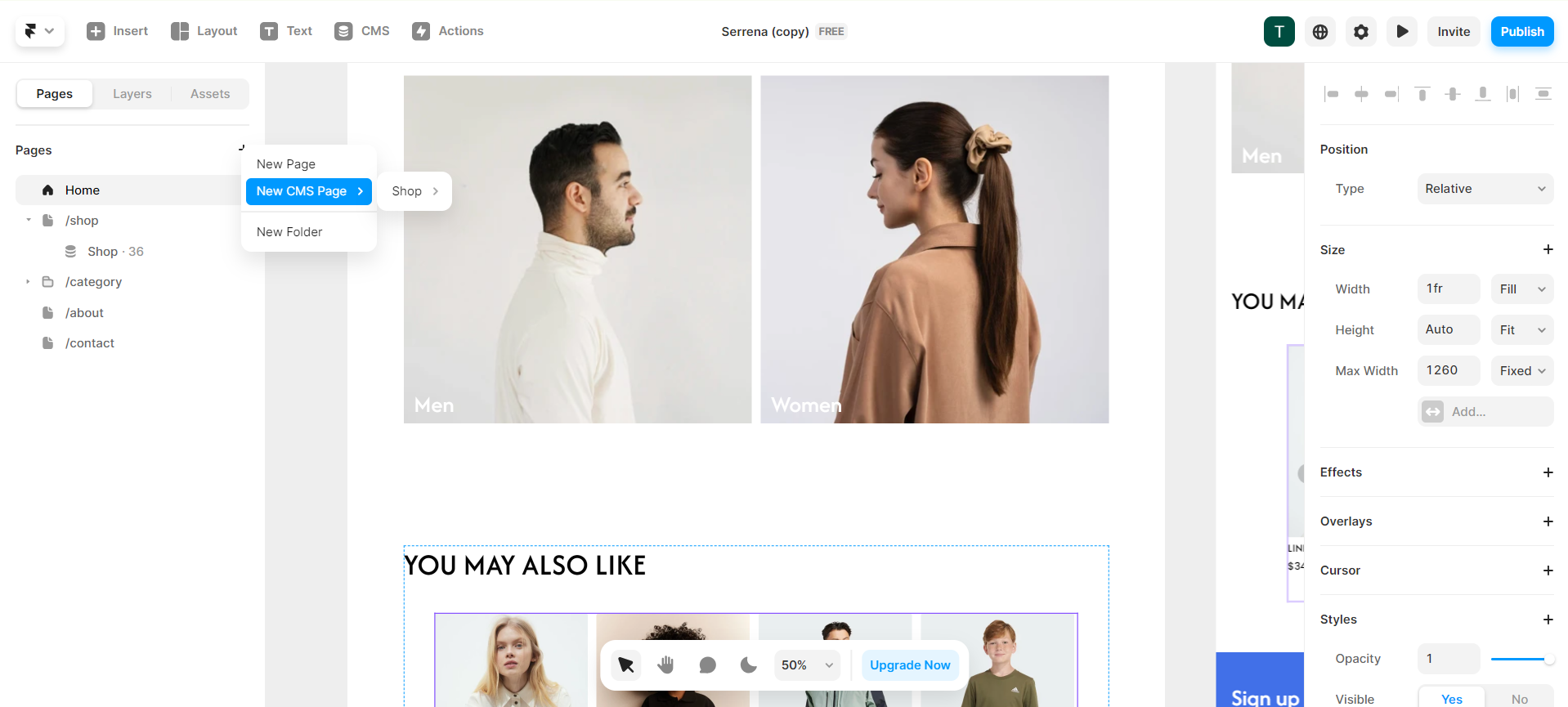
GoDaddy’s editor, scoring 6.7, is a user-friendly drag-and-drop tool enabling website creation without coding. It offers pre-designed templates, a mobile-friendly interface, basic SEO tools, and ecommerce integration, making it accessible for beginners, with affordable pricing plans and an all-in-one solution. However, it has some design limitations, basic features compared to dedicated platforms, a learning curve for extensive use, and potentially limited third-party app integrations.
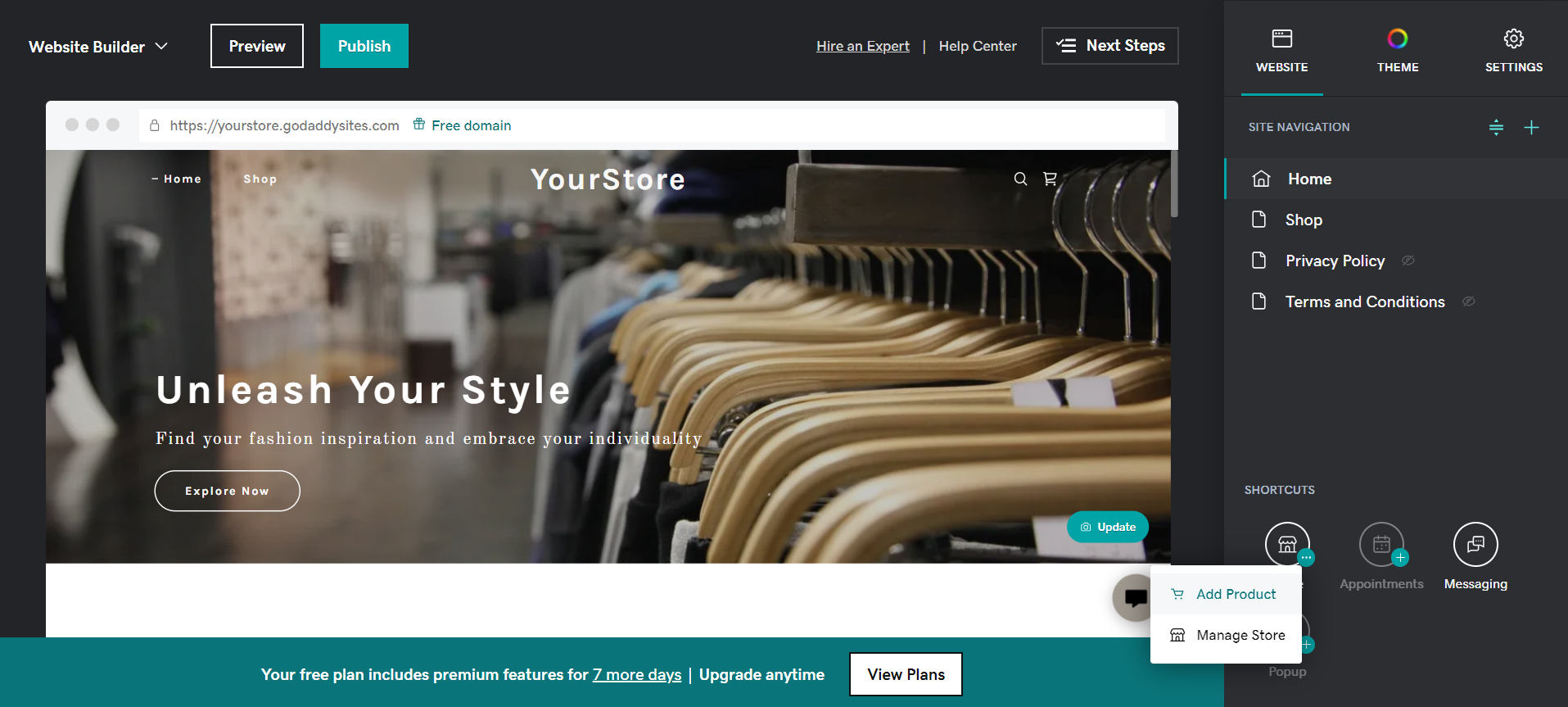
Mobile editor/app
 5.5
5.5
 4.5
4.5
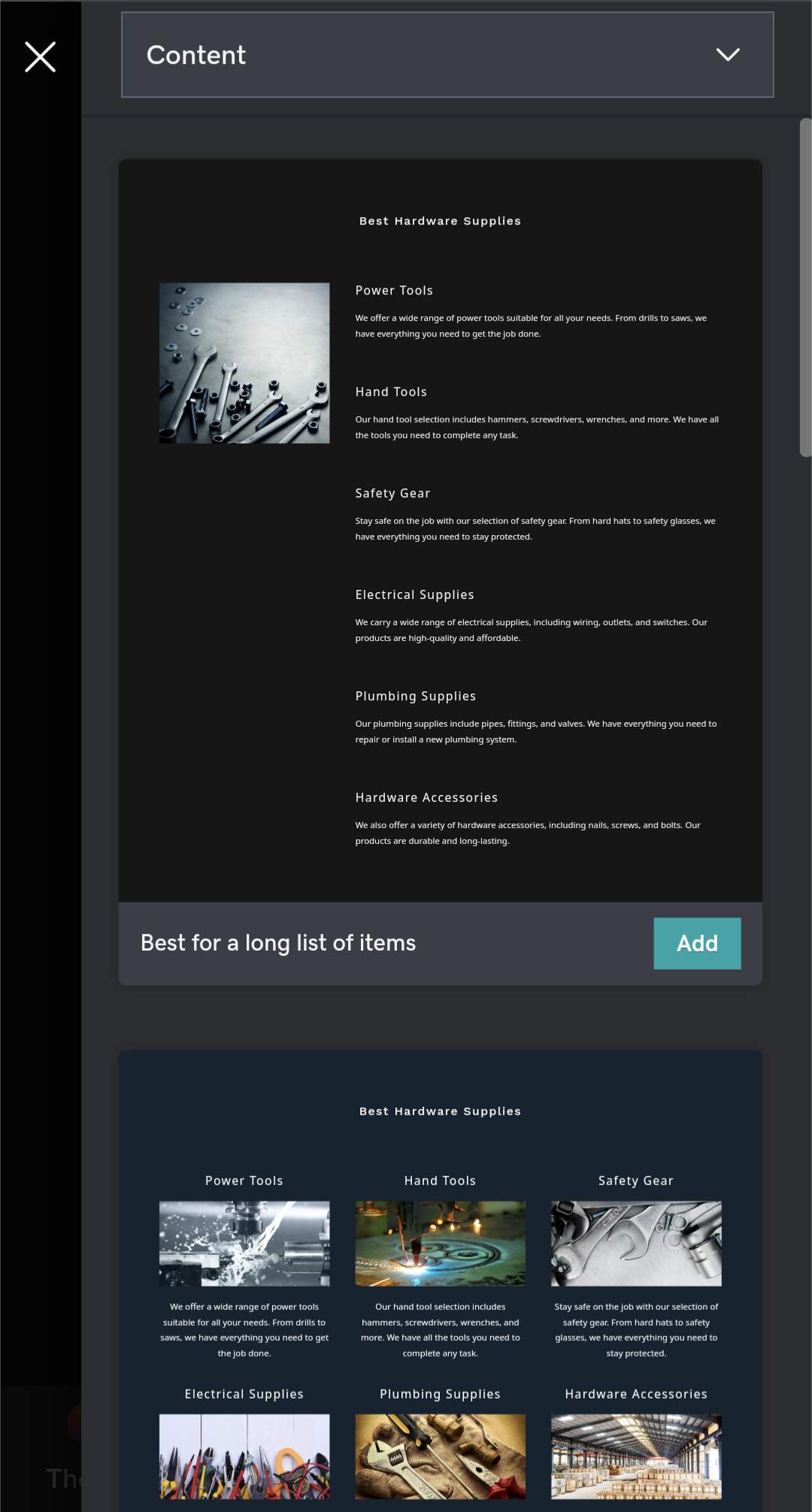
🏆
Winner: GoDaddy
. Both GoDaddy and Framer do not offer a dedicated mobile app for editing websites. However, users can log into their accounts and access the website builder through a mobile web browser. The mobile editing experience might be slightly more constrained on a smaller screen for both platforms.
GoDaddy, with a mobile editor score of 5.5, slightly outperforms Framer, which has a score of 4.5. This is likely due to GoDaddy’s more user-friendly interface and simpler features, which may be easier to navigate on a mobile device compared to Framer’s more complex and advanced functionalities.
In summary, GoDaddy receives a higher rating due to its user-friendly interface and simpler features, while Framer’s more complex and advanced functionalities may be better suited for users with some experience.
Product testing options
Product Testing OptionsAssesses the options for trying out platform features before commitment.Score Components:
- Trial quality (40%): Extent and usefulness of the trial or free version.
- Feature accessibility (30%): How many features are available to test.
- Trial duration (20%): Length of the trial period.
- Ease of transition (10%): Smoothness of moving from trial to paid plans.
 8.1
8.1
 6.2
6.2
Overall Result
:
GoDaddy wins
with a score of 8.1 against Framer’s 6.2. GoDaddy offers a free version and a 30-day money-back guarantee for all paid plans, allowing users to explore all features and get a full refund if not satisfied. Framer also offers a free version, but it doesn’t provide a trial version and only allows refunds in some regions within 14 days.

|

|
|
|---|---|---|
|
Free Plan |
Yes | Yes |
|
Trial Duration |
No (30-day money-back guarantee) | No |
|
Testing Premium Features |
Yes, with refund option within 30 days |
Limited with free version |
|
Money Back Guarantee |
30 days for all paid plans | 14 days in some regions |
Price
PriceLooks at the cost-effectiveness and value for money of each platform.Score Components:
- Plan value (40%): What each pricing tier offers.
- Transparency and clarity (30%): Clearness of pricing structures.
- Flexibility of plans (20%): Range of options to suit different budgets.
- Hidden costs (10%): Additional expenses not included in the plan.
 7.9
7.9
 7.7
7.7
GoDaddy and Framer have similar price scores, indicating comparable value for money.
Both offer a range of plans catering to different needs, from basic websites to complex ecommerce platforms. They also provide significant discounts for annual billing, with Framer offering up to 50% off depending on the plan. For larger organizations, both GoDaddy and Framer offer enterprise plans with advanced features and support.
| Price range |

|

|
|---|---|---|
|
Free |
Free ($0/month): Build a basic website with limited templates, storage, and features. Ideal for testing the platform. |
Free (Free/month): Allows 3 websites built on a framer.website subdomain with Framer branding in the footer. Limited to 1,000 traffic visitors and 1,000 CMS items. |
|
$0-$8 |
Basic ($5.99/month): More templates, custom domain support, email marketing, SEO tools, social media integrations, analytics. Ideal for personal websites and small businesses. Value for price: 6.5 |
No offering at this amount. |
|
$8-$15 |
Premium ($9.99/month): All Basic features + blog, ecommerce with product listings and payments, advanced marketing tools, and analytics. Ideal for businesses with online sales or growing web presence. Value for price: 8.0 |
Mini ($10/month): Removes Framer branding, allows using a custom domain, includes collaboration with an additional cost for extra editors, custom code embedding, e-commerce support, and limited CMS items. Offers a monthly visitor limit of 2,000 and 1GB bandwidth. Value for price: 6.5 |
|
$10-$18 |
Commerce ($15.99/month): All Premium features + advanced ecommerce tools like cart recovery, discounts, reviews, memberships, and unlimited products. Ideal for businesses with significant online sales and complex product offerings. Value for price: 9.0 |
No offering at this amount. |
|
$18-$25 |
Pro ($19.99/month): All Commerce features + priority support, higher bandwidth, website security, and CDN. Ideal for businesses with high traffic and critical online presence. Value for price: 9.5 |
Basic ($20/month): Offers all Mini features plus increased limits for CMS items (1,000) and traffic (10,000 visitors per month), along with 10GB bandwidth. Value for price: 7.5 |
|
$30+ |
No offering at this amount. |
Pro ($30/month): Enhances Basic plan features with a significant increase in CMS items (10,000), traffic (100,000 visitors per month), and bandwidth (100GB), among other advanced features. Value for Price: 8.5 |
location. As a result in rare cases the prices displayed here can differ from the ones you see on their
websites.
Hosting quality
Hosting
qualityExamines the reliability and performance of the hosting solutions.Score Components:
- Uptime (40%): Consistency and reliability of website availability.
- Speed (30%): Loading times and performance.
- Bandwidth and storage (20%): Sufficiency of resources provided.
- Data centers (10%): Quality and distribution of hosting infrastructure.
 7.8
7.8
 7.1
7.1
🏆
Winner: GoDaddy
GoDaddy offers a comprehensive range of hosting services, including shared, VPS, dedicated, and WordPress hosting. It also boasts a 99.9% uptime guarantee and data centers in multiple countries. Framer, on the other hand, offers cloud hosting with a 99.9% uptime and data centers in the US, Ireland, and Singapore. However, its uptime guarantee only applies to the enterprise plan. Despite Framer’s solid offerings, GoDaddy’s wider range of hosting services and global presence give it the edge.

|

|
|
|---|---|---|
|
Do they offer hosting? |
Yes, included in all of their plans |
Yes, included in all their plans |
|
Data Centers: |
Data Centers in USA, France, Germany and UK Cloud Services Through AWS |
4 data centers globally: 2 in US, 1 in Ireland, 1 in Singapore |
|
Type of hosting: |
Shared Hosting, VPS Hosting, Dedicated, WordPress Hosting |
Cloud Hosting |
|
Uptime: |
99.9% |
99.9% |
|
Uptime Guarantee: |
Yes, 99.9% |
Only for enterprise plan, 99.99% |
Website Speed Optimization
Website Speed OptimizationEvaluates optimization of website loading timesScore Components:
- PageSpeed Score (30%): Google’s score indicating performance optimization.
- Loading Time (30%): The average time until a website is fully interactive.
- Mobile Optimization (15%): Optimization effectiveness for mobile devices.
- Resource Optimization (15%): Optimizing images, scripts, and other heavy resources.
- CDN Usage (10%): Use of CDN to enhance speed across geolocations.
 7.6
7.6
 7.4
7.4
🏆 Winner: GoDaddy
Both GoDaddy and Framer prioritize website performance and page speed, with GoDaddy focusing on infrastructure upgrades, caching mechanisms, and code minification, and Framer emphasizing code minification, pre-rendering, caching, and image optimization. However, GoDaddy gets a slight edge when it comes to website speed optimization.

|

|
|
|---|---|---|
|
Focus |
Infrastructure upgrades, Caching, Code minification |
Code minification, Pre-rendering, Caching, Image optimization |
|
Performance Tools |
CDN, Automatic Maintenance, Resource Optimization |
Code Minification, Pre-Rendering, Caching, Image optimization |
|
Load Times |
Shared Hosting: 2-4 seconds, VPS Hosting: 1-2 seconds, Dedicated Server: 0.5-1.5 seconds |
Varies depending on optimization and website complexity |
|
Page Speed Scores Range |
Shared Hosting: 50-70/100, VPS Hosting: 70-85/100, Dedicated Server: 80-95/100 |
Varies depending on optimization and website complexity |
|
Core Web Vitals Improvement |
Infrastructure upgrades, improved server infrastructure and data centers, effective caching mechanisms, image optimization tools, and automatic minification of code files |
Emphasis on LCP, FID, CLS improvements |
GoDaddy has enhanced its platform through infrastructure upgrades, including improved server infrastructure and data centers, resulting in faster loading times. Additionally, the implementation of effective caching mechanisms, image optimization tools, and automatic minification of code files contribute to a smoother user experience and improved Core Web Vital metrics. The website builder features optimized templates and code structures for efficient rendering, further enhancing overall performance.
Framer, on the other hand, places a strong emphasis on code minification, pre-rendering, caching, and image optimization. However, its load times and PageSpeed scores vary depending on optimization and website complexity, which makes it slightly less predictable than GoDaddy in terms of website speed optimization.
Get a head start on website creation with AI
Create a custom website tailored to your business needs 10X faster with 10Web AI Website Builder!
Plugins and integrations
Plugins and integrationsMeasures the range and effectiveness of additional plugins and integrations.Score Components:
- Variety of options (40%): Range of available add-ons.
- Integration smoothness (30%): Ease of integrating plugins into the site.
- Quality of plugins (20%): Functionality and reliability of the options.
- Custom integration capabilities (10%): Support for custom or third-party integrations.
 7.3
7.3
 7.6
7.6
🏆 Winner: Framer.
Framer scores 7.6, slightly ahead of GoDaddy’s 7.3. Framer offers a variety of plugins that cater to different needs such as forms, video & animation, social media integration, audio, and utility functions. These plugins include integrations with platforms like Vimeo, MP4, Lottie, GIPHY, Instagram, Twitter, Google Maps, Trustpilot, Spotify, SoundCloud, Apple Music, and more.
On the other hand, GoDaddy’s Website Builder offers a limited set of built-in features, with certain premium apps available for additional fees, and lacks a traditional plugin marketplace like WordPress. However, on GoDaddy Managed WordPress Hosting, users have access to the extensive WordPress plugin repository, with most plugins being free and managed directly within the WordPress dashboard. Similarly, GoDaddy’s Unmanaged WordPress Hosting provides access to the same plugin repository but requires more manual control over installation and updates, necessitating technical knowledge.
Marketing Features
Design FunctionalitiesRepresents how well each platform allows for creative design and customization of websites.Score Components:
- Template Variety (30%): Range and quality of design templates.
- Customization (30%): Flexibility and options for design alterations.
- User Interface (20%): Ease and intuitiveness of the design process.
- Responsiveness (10%): Adaptability to different devices and screen sizes.
- Innovation (10%): Unique design features and tools.
 7.3
7.3
 7.2
7.2
🏆
Overall Winner: GoDaddy
. GoDaddy offers a more comprehensive set of marketing tools, including ads and promotions, which Framer lacks. Both platforms offer SEO tools, email marketing, blogging, social media integration, and analytics and reporting, but GoDaddy’s features are more robust and integrated.

|

|
|
|---|---|---|
|
SEO Tools |
|
|
|
Email Marketing |
|
Yes (through third-party integration) |
|
Blogging |
|
|
|
Social Media Integration |
Tools for social media linking and content sharing |
|
|
Analytics and Reporting |
Basic analytics with more detailed insights on higher plans |
Yes, only on higher plans |
|
Ads and Promotions |
Features to create and track online ads, including Google Ads |
|
Customer Support
Customer supportEvaluates the quality and availability of support options.Score Components:
- Response time (40%): Speed of support responses.
- Support quality (30%): Effectiveness and helpfulness of the support.
- Availability (20%): Range of support channels (phone, chat, email).
- Resource richness (10%): Quality of self-help and educational materials.
 8.5
8.5
 5.6
5.6
🏆 Winner: GoDaddy
. In the GoDaddy vs Framer comparison, GoDaddy takes the lead with its extensive customer support options. GoDaddy offers 24/7 phone support in multiple languages, live chat, and email assistance with a response time of within 24 hours. Additionally, users can access a 24/7 community forum and connect through social media channels, ensuring comprehensive support availability. Enterprise customers benefit from dedicated account managers, priority routing, and advanced technical expertise.
Framer, on the other hand, primarily relies on self-help options through its community forum and knowledge base. While email support is available, details about working hours and availability are not provided, which may limit the immediacy and accessibility of support. This makes GoDaddy a more robust option for users seeking reliable and readily available customer support.
Security
SecurityLooks at the platforms’ security measures and data protection.Score Components:
- Data protection (40%): Safeguards for user and customer data.
- SSL and encryption (30%): Implementation of secure connections.
- Compliance (20%): Adherence to industry security standards.
- Regular updates (10%): Frequency of security updates and patches.
 6.8
6.8
 8.2
8.2
🏆
Winner: Framer
. Framer’s security measures are more comprehensive than GoDaddy’s. Framer uses Amazon Web Services for hosting, ensuring data is encrypted at rest, and manages secrets and encryption keys through AWS Parameter Store and Key Management Service. They also emphasize product security through secure development practices, external security testing, and a bug bounty program.
GoDaddy, while offering encryption and adhering to security standards, provides limited options for private data storage protection. Their website security includes features like SSL certificates, malware scanning, and web application firewalls, but users looking for comprehensive data security may need to consider alternative solutions.
AI Capabilities
AI capabilitiesMeasures the effectiveness of AI-driven features and tools.Score Components:
- Automation efficiency (40%): Impact of AI on streamlining processes.
- Personalization (30%): AI-driven customization for users or customers.
- AI-Assisted design (20%): Role of AI in website design and functionality.
- Data analysis (10%): Use of AI in interpreting user data and analytics.
 7.5
7.5
 7.6
7.6

|

|
|
|---|---|---|
|
AI Website Builder |
|
Framer’s AI builder simplifies the process of creating and optimizing web content |
|
AI Ecommerce Features |
AI-generated product descriptions, customer service tools, and digital ad creation |
|
|
AI Content Generation |
AI-generated product descriptions, customer service messages, and social media ads |
AI Translation, Text Rewrite, and Headline Generator |
|
Additional AI Features |
|
AI Style and AI Photo Generating and Editing tools |
🏆 Winner: Framer
. Framer, with a score of 7.6, offers a comprehensive AI website builder and a range of AI content generation features. It also provides additional AI features like AI Style and AI Photo Generating and Editing tools. However, it lacks AI ecommerce features.
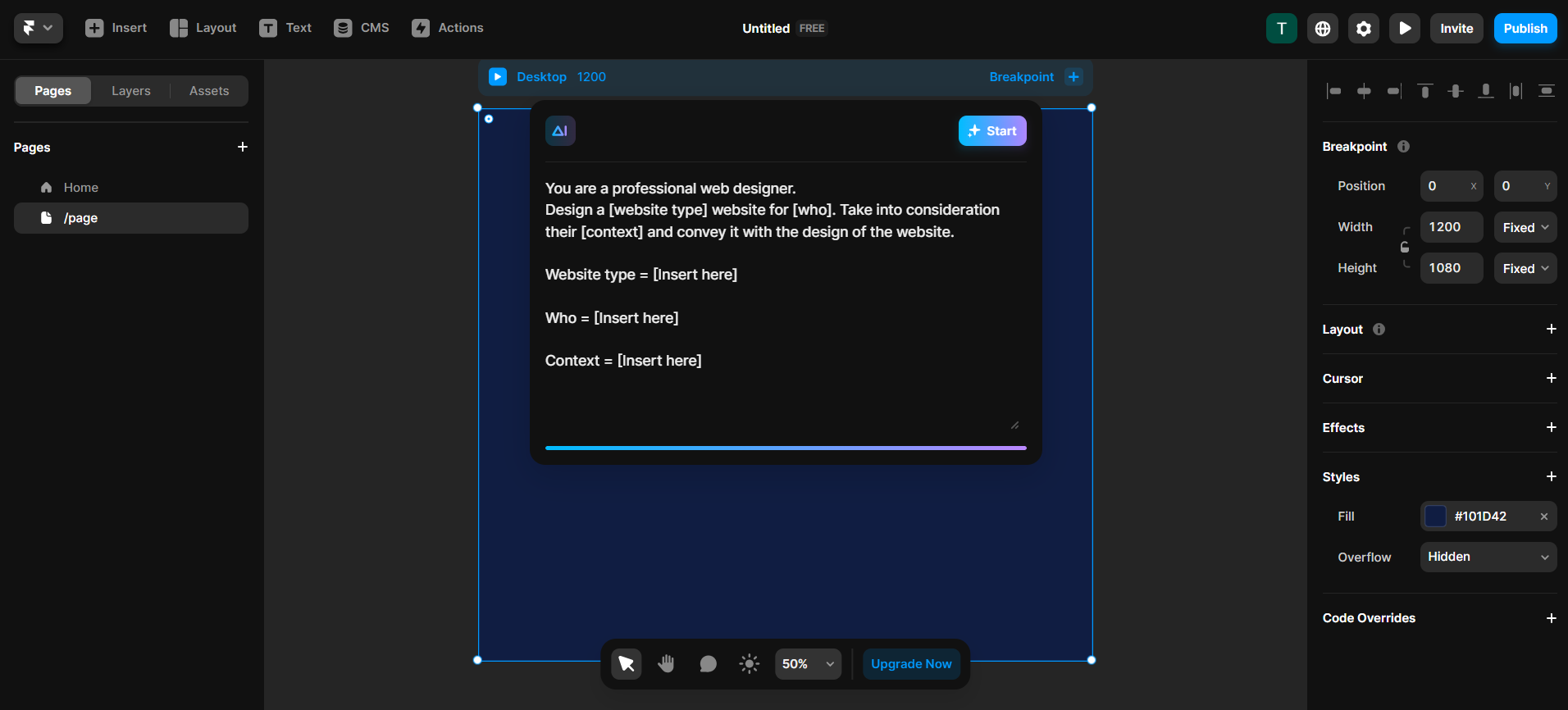
GoDaddy, with a score of 7.5, focuses its AI capabilities on ecommerce, with features like AI-generated product descriptions, customer service tools, and digital ad creation. However, it does not have an AI website builder or additional AI features.
User Management
User ManagementAssesses the platforms’ capabilities in managing user roles, permissions, and accessibility.Score Components:
- Role Customization (40%): Flexibility in creating and defining user roles and
permissions. - Ease of Management (30%): User interface and tools for managing users.
- Access Control (20%): Effectiveness of access control measures for different user
levels. - Scalability (10%): Ability to manage a growing number of users efficiently.
 7.3
7.3
 7.4
7.4
🏆 Winner: Framer
. Both GoDaddy and Framer offer different levels of user roles and access, but Framer edges out with a slightly higher user management score.
- GoDaddy’s user management varies based on the hosting plan and website building tool. For Website Builder, the free plan permits one user, while Deluxe and Ultimate plans allow up to five users with full editing permissions. In WordPress Hosting, there’s default support for unlimited users, each with customizable permission levels controlled through the WordPress dashboard.
- Framer supports team collaboration with different plans allowing a varying number of editors; the Team Basic plan allows up to 5 editors, while the Team Pro plan supports up to 10 editors. These plans come with additional features like live collaboration, comments, file storage, and extended version history.
GoDaddy User Roles and Access Levels:
| Role | Description | Access Highlights |
|---|---|---|
| Account Holder | The primary owner of the GoDaddy Website Builder account. | Full access to all website builder features, domain management, hosting settings, and account settings. |
| Delegate Access | Users granted permission by the account holder to access specific parts of the GoDaddy account. | Can be given varying levels of access, from managing domains and products to making purchases on behalf of the account holder. |
| Website Editor | Users with permissions to edit and update the website through the Website Builder interface. | Can customize the website, add or edit sections (e.g., image galleries, menus), and update content. |
| Online Store Manager | Specifically for websites with e-commerce capabilities, managing product listings, orders, and payments. | Access to manage the online store, including product listings, coupons, shopping cart, shipping, and payments. |
Framer User Roles and Access Levels:
| Role | Description | Access Highlights |
|---|---|---|
| Designer | Focuses on the aesthetic and UI/UX aspects of the website. | Can create and modify design elements, utilize animation libraries like Framer Motion, and implement accessibility settings. |
| Content Editor | Manages and curates content for the website, including text, images, and other media. | Can edit CMS content, use localization features for different regions, and modify SEO settings. |
| Developer | Works on more technical aspects, such as custom code and integrations. | Has access to deploy options, can use custom domains, manage project permissions, and apply custom code for further optimization. |
| Project Manager | Oversees the project, coordinating between different roles and ensuring the project meets its deadlines and goals. | Can invite collaborators, assign roles and permissions, and manage versions and rollbacks for efficient site management. |
| Collaborator (General) | A role that can encompass various levels of access based on project needs, including design, content, and deployment tasks. | Access can be customized to include a mix of design, content, and deploy permissions based on the project’s needs and the individual’s role within the team. |
Additional Features

|

|
|
|---|---|---|
|
SSL Certificate |
|
|
|
Custom Domain |
|
|
|
Free Custom Domain Included |
|
|
|
International Domains |
|
|
|
Mobile Responsive |
|
|
|
Page Speed |
|
|
|
Website Builder Mobile App |
|
|
|
Convert a Website To An App |
|
|
|
Website Analytics |
|
|
|
Multilingual Sites |
|
|
|
Multiple Users |
|
|
GoDaddy vs Framer: User Feedback
Users generally praise GoDaddy for its affordability, reliability, and user-friendly interface, particularly in domain registration and hosting services. However, concerns include occasional interface changes, perceived slowness in website hosting, and dissatisfaction with pricing increases.
Framer receives high marks for its user-friendly, no-code approach to web and prototype design, offering extensive tutorials, templates, and drag-and-drop functionalities that expedite the design process. Users appreciate its integration with tools like Figma, AI-generated responsive designs, and real-time collaboration features. Critiques focus on a steep learning curve for newcomers and limitations in customer support and features without premium access. Despite these drawbacks, Framer is lauded as a powerful design tool that enhances creativity and efficiency in web development.
The making of this blog
We followed a clear, step-by-step process to write and research this article.
GoDaddy vs Framer: FAQ
Which platform is better for beginners, GoDaddy or Framer?
Can I use both GoDaddy and Framer for ecommerce?
How do GoDaddy and Framer differ in terms of design flexibility?
What are the major differences in pricing between GoDaddy and Framer?
Which platform offers better customer support, GoDaddy or Framer?










